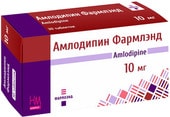Valodip Tablets 5mg/160mg: Effective Blood Pressure Control
Looking for a reliable solution for managing your high blood pressure? Valodip tablets are a powerful combination of amlodipine and valsartan, two proven medications that work together to lower your blood pressure effectively. This comprehensive guide provides detailed information on Valodip tablets, helping you understand its benefits, uses, and potential side effects.
Valodip: A Powerful Duo for Blood Pressure Management
Valodip is a unique combination of two active ingredients:
- Amlodipine: A calcium channel blocker that relaxes blood vessels, reducing resistance and lowering blood pressure.
- Valsartan: An angiotensin II receptor antagonist that blocks the effects of angiotensin II, a hormone that constricts blood vessels, leading to increased blood pressure.
This synergistic action makes Valodip highly effective in lowering blood pressure, providing significant benefits for patients with arterial hypertension.
Who is Valodip for?
Valodip is prescribed to patients with arterial hypertension who require combination therapy. It is particularly helpful for individuals whose blood pressure is not adequately controlled with amlodipine or valsartan alone.
Valodip: Detailed Information
- Dosage Form: Film-coated tablets
- Available Strengths:
- 5 mg / 80 mg
- 5 mg / 160 mg
- 10 mg / 160 mg
- Composition:
- Amlodipine (as amlodipine besylate)
- Valsartan (as valsartan A granules)
- Excipients: microcrystalline cellulose, croscarmellose sodium, povidone K25, sodium lauryl sulfate, mannitol, magnesium stearate, anhydrous colloidal silicon dioxide, polyvinyl alcohol, partially hydrolyzed, E171 titanium dioxide, macrogol, talc, yellow iron oxide E172.
- Appearance: Round, slightly biconvex film-coated tablets with a brownish-yellow color (may have dark inclusions or blotches).
- Pharmacological Group: Angiotensin II antagonists and calcium channel blockers (ATC Code: C09DB01)
Key Benefits of Valodip:
- Effective Blood Pressure Control: Provides a more pronounced and sustained decrease in blood pressure compared to individual components.
- Synergistic Action: The combined action of amlodipine and valsartan offers a comprehensive approach to blood pressure management.
- Convenience: Valodip tablets offer a convenient once-daily dosage, simplifying your medication regimen.
Important Considerations:
Valodip is not suitable for everyone. It is essential to consult with your doctor to determine if Valodip is the right medication for you.
Contraindications:
Valodip is contraindicated in the following cases:
- Hypersensitivity to amlodipine, valsartan, or any component of the drug.
- Severe liver failure, biliary cirrhosis, or cholestasis.
- Severe renal failure (GFR < 30 ml/min/1.73 m2), including patients on hemodialysis.
- Simultaneous use of angiotensin receptor antagonists, including valsartan, or ACE inhibitors with aliskiren in patients with diabetes mellitus or renal insufficiency (GFR < 60 ml/min/1.73 m2).
- Second and third trimesters of pregnancy.
- Severe arterial hypotension, shock (including cardiogenic shock).
- Obstruction of the outflow tract of the left ventricle (including hypertrophic obstructive cardiomyopathy and severe aortic stenosis).
- Hemodynamically unstable heart failure after acute myocardial infarction.
Potential Side Effects:
Like any medication, Valodip may cause side effects. Common side effects include:
- Headache
- Dizziness
- Fatigue
- Swelling (edema)
Rare side effects can occur, so it is crucial to consult with your doctor if you experience any unusual symptoms.
Dosage and Administration:
The recommended dosage is one tablet per day, taken orally with a small amount of water, regardless of meal time. Dosage adjustments may be necessary based on individual needs and response to treatment.
Valodip and Elderly Patients:
Caution should be exercised when increasing doses in elderly patients (65 years and older).
Valodip and Patients with Renal Impairment:
Valodip is contraindicated in patients with severe renal insufficiency. Dose adjustments may not be required for patients with mild or moderate renal insufficiency. Regular monitoring of potassium and creatinine levels is recommended for patients with moderately severe renal failure.
Valodip and Patients with Diabetes:
Simultaneous use of Valodip and aliskiren is contraindicated in patients with diabetes mellitus or renal insufficiency.
Valodip and Patients with Hepatic Impairment:
Valodip is contraindicated in patients with severe hepatic impairment. Caution is necessary when prescribing the drug to patients with impaired liver function or obstructive disorders of the biliary tract.
Valodip and Children:
The safety and efficacy of Valodip in children under 18 years of age have not been established.
Always consult with your healthcare professional before starting any new medication. They can provide personalized advice and ensure Valodip is the right choice for your specific needs.
Valodip: Your Path to Healthy Blood Pressure Management
By understanding the benefits, uses, and potential risks of Valodip, you can make an informed decision about this medication. Remember to consult with your doctor to discuss your individual needs and create a personalized treatment plan. With proper care and management, Valodip can play a significant role in achieving and maintaining healthy blood pressure, improving your overall well-being.
This information is for educational purposes only and does not constitute medical advice. Please consult with your doctor or healthcare professional for personalized advice and treatment.
| INN | AMLODIPINE + VALSARTAN |
|---|---|
| The code | 134 030 |
| Barcode | 3 838 989 636 913 |
| Dosage | 5mg/160mg |
| Active substance | Amlodipine, valsartan |
| Manufacturer | KRKA-RUS LLC, Russian Federation, Russia |
| Scope of application | The cardiovascular system |
| Indications Applications | Arterial hypertension (for patients who are indicated for combination therapy) |
| Contraindications | Hypersensitivity to amlodipine, other derivatives of the dihydropyridine series, valsartan or other components of the drug, etc. (Read the instructions) |
| Use during pregnancy and lactation | Forbidden to use |
| Age category | 16+ |
| Application Gender | Any |
| Release Form | tablets |
| Importer | IOOO "Interfarmaks", Republic of Belarus, 223028, Minsk region, Minsk district, Zhdanovichsky s / s, ag. Zhdanovichi, st. Zvezdnaya, 19A-5, pom. 5-2 |
Related products
Cardiovascular Health
 Free worldwide shipping on orders $99+
Free worldwide shipping on orders $99+  US: temporary delays — postal services aligning new import rules,
US: temporary delays — postal services aligning new import rules,  EU: 1–2 weeks,
EU: 1–2 weeks,  Worldwide: 1–4 weeks
Worldwide: 1–4 weeks 











